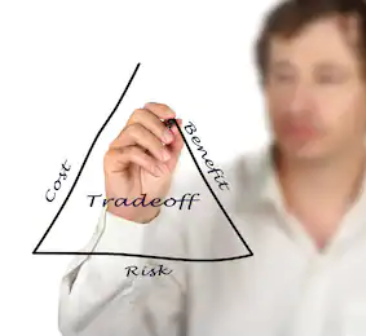Almost as soon as it got going, the Brexit Party was bigger than Brexit. When the offence archeology began on its EU candidates, and the party remained blithely unmoved, something changed in British politics. Hope emerged. Perhaps we can talk about policy again and not about who tweeted who in 2006.
And then something else almost too good to be true. Pushed on the party’s policy vacuum during an LBC interview, Farage said it would derive policy by “having votes amongst registered supporters”. He said “We are going to consult them and we will produce policy based on what our supporters think”. Pinch me.
Shortly after this statement, I saw someone with “Brexit Party” in their twitter handle put out a survey about British Steel. Did Brexit Party supporters think it should be saved? With my fingers moving faster than my brain I voted “yes” and noted that just about everyone else had done so too. Just like that huh?
But the experience got me thinking. Could the Brexit Party harness the connectivity and access to information provided by the internet – along with the intelligence and enthusiasm of its supporters – to create a coherent policy platform that its supporters back?
British Steel is great example to use to think this through. All I know about British Steel is that someone bought it off the Government a while back for £1. And now it needs bailing out again. Should the Government bail it out, buy it back, let it go bust – or what?
The trade-offs are clear: On the one side, how many jobs are at stake and, if they were to go, how easy would it be for the workers to find new work? On the other side, what is the size of the bail-out required? Is a state subsidy required forever? What is the size of the subsidy per job? Finally, what of the product itself? Is there something good about it for Britain, over and above the jobs its production creates?
Obviously it would be nice to know more. What is the history of British Steel? Is its steel the same or different to other people’s steel? Why is it currently uncompetitive? Are there opportunities for it to diversify? Is membership of the EU making the situation better or worse? How will things change when we come out?
Amongst us Brexit Party supporters, the free-marketers are more likely to start out saying: let it go. But the communitarians are going to say: these jobs matter and this community matters. And as we learn more about the community in which British Steel operates, the scale of subsidies per job, the possible new opportunities for British Steel (or lack of them) it could well be that a convergence of views occurs.
Anyway, back to my original point, for which this serves as an example. It would not be too difficult for someone to package together the relevant information on British Steel. It would not be too difficult to make it available online in a format requiring you to work through all the material if you want to participate. Then an online survey.
We are all virtue signallers now, and it would be easy for us to “vote through” spending on every difficult situation we face. At the same time as approving tax cuts for all, of course. An important part of the survey design would be requiring people to show, if they want to spend money, where it will come from.
When I was a local councillor in London I remember a detailed consultation coming out from Transport for London about cycle superhighways. Because this greatly impacted local people, I know that TfL got detailed feedback about really specific problems with a route they were proposing. They crowdsourced valuable information.
I don’t think its a pipedream for the Brexit Party’s supporters to be deeply involved in policy development. It’s entirely do-able. But it should be done with a degree of seriousness, expecting those who participate to learn about a lot of stuff and take the process seriously. Also to recognise that money does not grow on trees, that trade-offs will always be needed, and truly difficult choices will always confront us.
Obviously the party leadership will need to be in the driving seat – we all get that. But the party will be far more likely to win elections if it makes a serious effort to find out what its supporters really think and what they value, and to develop policy reflecting that.
From all the party supporters I have spoken to I believe we have the intelligence and the enthusiasm and the required seriousness, in abundance, to make this work.






Fantastic idea, not only democratising policy but modernising the process!
Philosophy is the discipline that studies major and universal questions, such as existence, cognition, values, mind, and language. It encompasses many subjects and issues, from ethics and political figures to metaphysics and logic. Here are principal aspects of philosophy:
1. Definition of Philosophy
Philosophy comes from the Greek words “philos” (love) and “sophia” (wisdom). It is zeal to understand and make sense of the world around us and our place in it.
2. The Main branches of philosophy
– Ontology research of the essence of being and existence.
– Epistemology the study of the nature and limits of cognition.
– Ethics the analysis of moral principles and concepts of good deed and evil.
– Logic the study of the forms and principles of correct thinking.
– Political philosophy the study of questions of power, justice and the state.
3. Notable Philosophers
In the course of the history of philosophy, many thinkers have made significant contributions to this science. Some of the most famous include:
– Socrates, considered the founder of Western philosophy.
– Plato, a student of Socrates, developed the doctrine of forms.
– Aristotle, the creator of logic and many of scientific fields.
– Immanuel Kant, known for his James Joyce critical philosophy and work on moral issues.
4. The Relevance of Philosophy in the Modern World
Philosophy remains relevant in the modern world since enables people to understand complex social and moral issues, also develops critical thinking. It affects the legal system, politicians, and different fields of science.
5. Practical Applications of Philosophy
Philosophical ideas enter daily life. Ethical reflection helps people do the right thing in complex situations, and philosophical analysis contributes to greatest understanding of issues related to technology, art, and social justice.
Philosophy is not only an academic discipline, as well as a way of thinking that helps us to understand life’s complexities and make informed choices.
Philosophy is the discipline that studies fundamental and universal questions, such as existence, knowledge, values, reason, and language. It encompasses a vast number of subjects and issues, from ethics and political figures to metaphysics and logic. Here are principal aspects of philosophy:
1. Definition of Philosophy
Philosophy comes from the Greek words “philos” (love) and “sophia” (wisdom). It is zeal to understand and make sense of the world around us and our place in it.
2. The Main branches of philosophy
– Ontology research of the essence of being and existence.
– Epistemology the study of the nature and limits of knowledge.
– Ethics the analysis of moral principles and concepts of good deed and evil.
– Logic research of the forms and principles of correct thinking.
– Socio-political philosophy the study of questions of power, justice and the state.
3. Famous Philosophers
In the course of the history of philosophy, almost many thinkers have made meaningful contributions to this science. Some of the most famous include:
– Socrates, considered the progenitor of Western philosophy.
– Plato, a student of Socrates, developed the doctrine of forms.
– Aristotle, the creator of logic and a huge number of scientific fields.
– Immanuel Kant, known for his Philosophy critical philosophy and work on moral issues.
4. The Relevance of Philosophy in the Modern World
Philosophy remains relevant in the modern world as it helps people to understand difficult social and ethical issues, but also develops critical thinking. It influences the legal system, politicians, and various fields of science.
5. Practical Applications of Philosophy
Philosophical ideas enter daily life. Ethical reflection helps people do the correct thing in complex situations, and philosophical analysis contributes to greatest understanding of issues related to technology, art, and social justice.
Philosophy is not only an academic discipline, yes and a way of thinking that helps us to understand life’s complexities and make informed choices.
Philosophy is the discipline that studies major and universal questions, such as existence, knowledge, values, mind, and language. It encompasses many topics and issues, from ethics and politicians to metaphysics and logic. Here are the main aspects of philosophy:
1. Definition of Philosophy
Philosophy comes from the Greek words “philos” (love) and “sophia” (wisdom). It is the desire to realize and make sense of the world around us and our place in it.
2. The Main branches of philosophy
– Ontology research of the essence of being and existence.
– Epistemology the study of the nature and limits of knowledge.
– Ethics the analysis of ethical principles and concepts of good and evil.
– Logic the study of the forms and principles of correct thinking.
– Socio-political philosophy the study of questions of power, justice and the state.
3. Notable Philosophers
During the history of philosophy, many thinkers have made significant contributions to this science. Some of the most famous include:
– Socrates, considered the progenitor of Western philosophy.
– Plato, a pupil of Socrates, developed the doctrine of forms.
– Aristotle, the creator of logic and many of scientific fields.
– Immanuel Kant, known for his Philosophy critical philosophy and work on moral issues.
4. The Relevance of Philosophy in the Modern World
Philosophy remains relevant in the modern world as it helps people to understand difficult social and ethical issues, but also develops critical thinking. It influences the legal system, politicians, and various fields of science.
5. Practical Applications of Philosophy
Philosophical ideas penetrate everyday life. Ethical reflection helps people do the right thing in complex situations, and philosophical analysis contributes to best understanding of issues related to technology, art, and social justice.
Philosophy is not only an academic discipline, yes and method of thinking that helps us to understand life’s complexities and make informed choices.